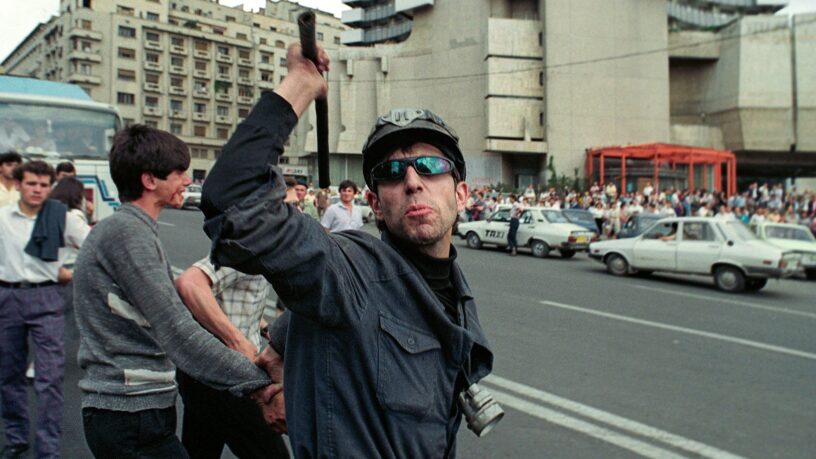Ageing former president faces fresh questions over bloody events in 1990, when miners were used to brutally crush protests by students and liberals in Bucharest.
Romania’s former president Ion Iliescu was questioned on Friday at his home in Bucharest over the “Mineriada Case”, a pivotal event in Romanian history.
This case dates back to the early-1990s, when massive protests against the new authorities installed after the Revolution of December 1989 that overthrew communist dictator Nicolae Ceausescu were brutally crushed.
Prosecutors informed Iliescu of the indictment. He was interviewed at home at his request because he could not travel as he is 94. Several gendarmes were present.
Iliescu’s lawyer, Adrian Georgescu, said on Friday that the former president did not make a statement but was only informed of his status. He pleaded previously not guilty.
The General Prosecutor’s Office announced on Thursday said it was continuing the investigation of the “Mineriada case”, which also involves former PM Petre Roman, vice-PM Gelu Voican Voiculescu, former chief of intelligence Virgil Magureanu, and the leader of the miners in the Jiului Valley basin, Miron Cozma.
From the evidence, it appears that in June 1990 they launched a policy of harsh repression against demonstrators in Bucharest as a result of which four people were killed, two people were raped and over 1,300 people were illegally deprived of liberty.
The demonstrations in Bucharest’s University Square from April 22, 1990, to June 13, 1990, were against the newly established authorities. Protesters demanded the replacement of Communist-era officials, the promotion of people who did not have a past in the party and other demands.
In this context, Petre, Gelu-Voican, Magureanu Virgil, and others from the state or National Salvation Front leadership launched an attack against the demonstrators. Prosecutors claim that students, intellectuals and other people were attacked just because they supported Western values.



